The DNA of Jesus? Don’t be so sure, Mr Cameron
By James Morgan | The Herald
http://www.theherald.co.uk/features/features/display.var.1226604.0.0.php
It doesn't get bigger than this," said Titanic director James Cameron, standing in front of a 2000-year-old stone box which he claimed contained the remains of Jesus Christ.
JC had found JC. And he had "DNA evidence" to prove it. Not only that, he had next to him a professor of statistics who had calculated that the odds of it being Jesus were 600-1 on.
The box was one of 10 found in 1980 in a cave known as the Talpiot tomb. Five of the boxes were inscribed with names including Jesus, Mary, Joseph and Mary Magdalene.
After being approached by the makers of a new film called The Lost Tomb of Christ - of which Cameron is executive producer - Dr Andrey Feuerverger, a mathematician at the University of Toronto, performed a controversial statistical analysis. He examined how often these names appeared in the first century BC and considered the possible number of tombs that might have existed in Jerusalem during that time, a figure he put at 1000.
His conclusion? "Taking into account the chances that these names would be clustered together in a family tomb the odds on the most conservative basis are 600 to one in favour of this being the Jesus family tomb." In other words, he said, the chances of the tomb not being that of Jesus's family were 600 to one.
It sounds impressive. But when I put the figures to a respected independent statistician, he wasn't so sure. "The figure of 600 to one is highly misleading," says Colin Aitken, professor of forensic statistics at Edinburgh University. "The calculation is based on a number of assumptions. The first is that there is a tomb of Jesus. For many people, including Christians, that's a non-starter. Then are we assuming that Jesus and his whole family lived their entire lives and died in Jerusalem? And the figure of 1000 graves doesn't seem very many.
"Furthermore, even if we accept the assumptions, 600 to one is certainly not the odds in favour of this tomb being Jesus," adds Aitken. "To explain why not, let me give you a criminal analogy. If you went to a crime scene, found a DNA sample, and then found a suspect whose DNA was a one in 600 chance of a match, it would not follow that the odds were 600 to one on them being guilty."
So what, if anything, does this 600 figure mean? "If you accept the assumptions, the 600 figure simply means the probability that the tomb belongs to Jesus is now 600 times more likely than it was before. But, given the odds before were probably minuscule, to multiply it by 600 doesn't make it particularly likely."
Still, let's suppose for a moment that the odds are correct and that, no matter how unlikely, this is in fact the tomb of Jesus. Do we now have a sample of the DNA of Christ?
After performing a DNA test on residue taken from the tombs, a laboratory in Ontario concluded that the bodies in two ossaries marked "Jesus" and "Mary Magdalene" were not related on their mother's side. From this, the film-makers deduce Jesus and Mary Magdalene were a couple, because otherwise they would not have been buried together in a family tomb. But not only does that contradict one of the central tenets of Christian belief; it is scientifically implausible, according to one of the world's leading experts in ancient DNA.
Dr Ian Barnes of Royal Holloway, University of London, says: "DNA degrades over time. At high temperatures, it degrades even faster. I've worked in the Middle East we did not have any success even a few hundred years back, let alone 2000 years.
"What worries me most is that the sample they took was not from bones. That may be acceptable in a criminal investigation, where the crime scene is only a few years old, but this is a 2000-year-old tomb. The potential for contamination is clearly enormous. It is highly possible that the DNA belongs to someone who excavated the tomb, or even someone in the lab carrying out the tests. That to me would seem far more likely.
"Most disappointing of all, we still don't know who Jesus's father is, because they didn't test his Y chromosome. Was it God or the Holy Spirit? I for one am very disappointed."

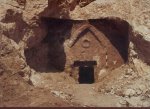
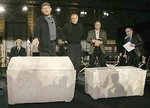






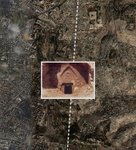


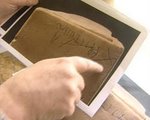






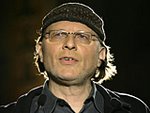

















No comments:
Post a Comment